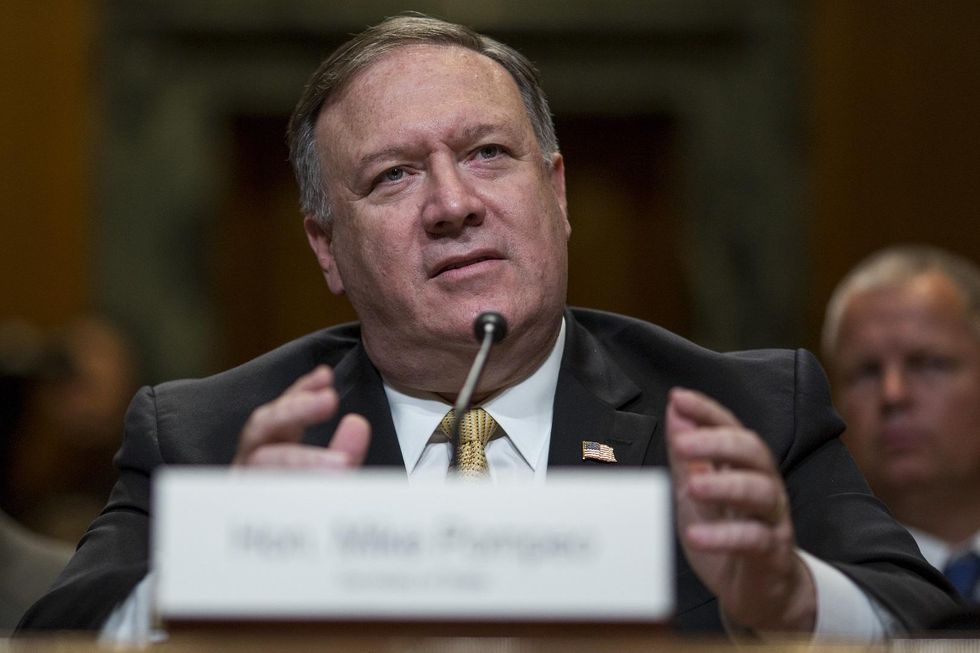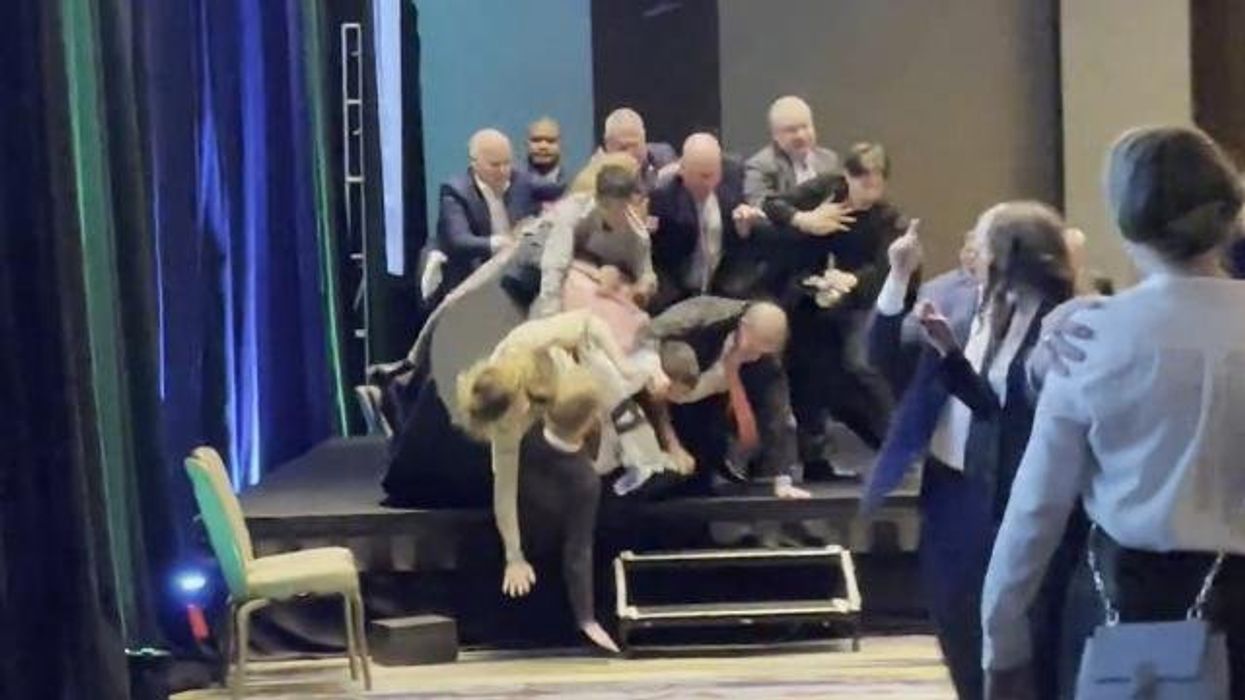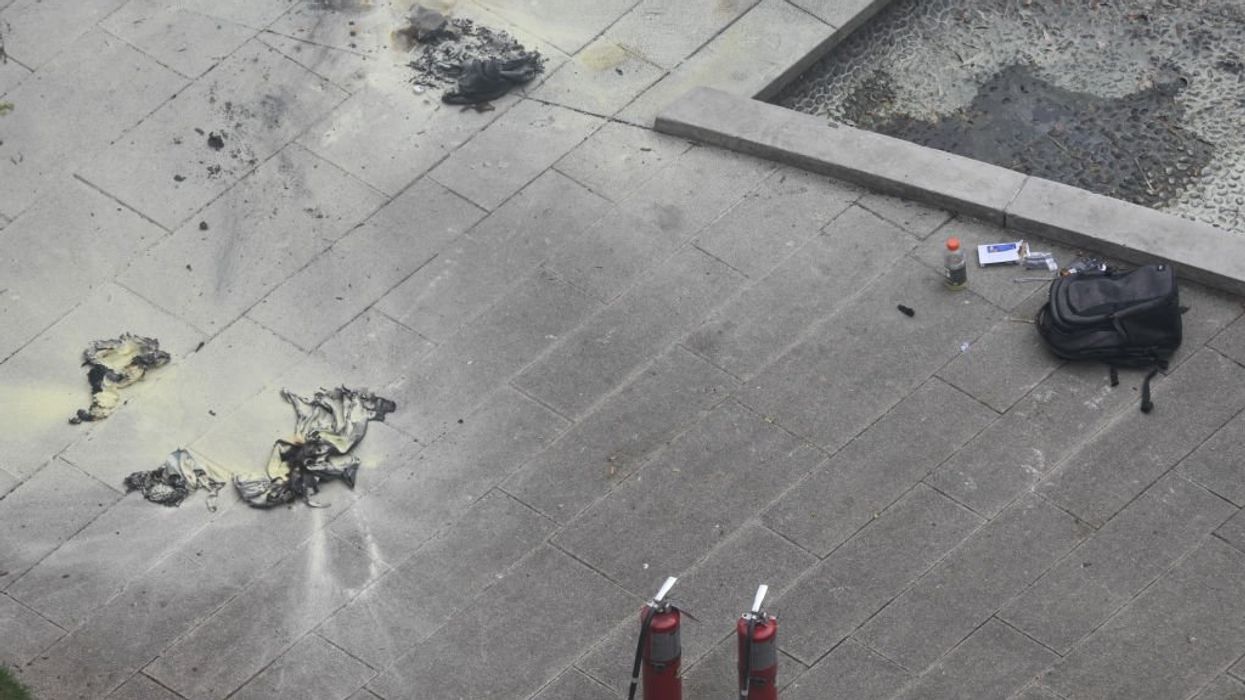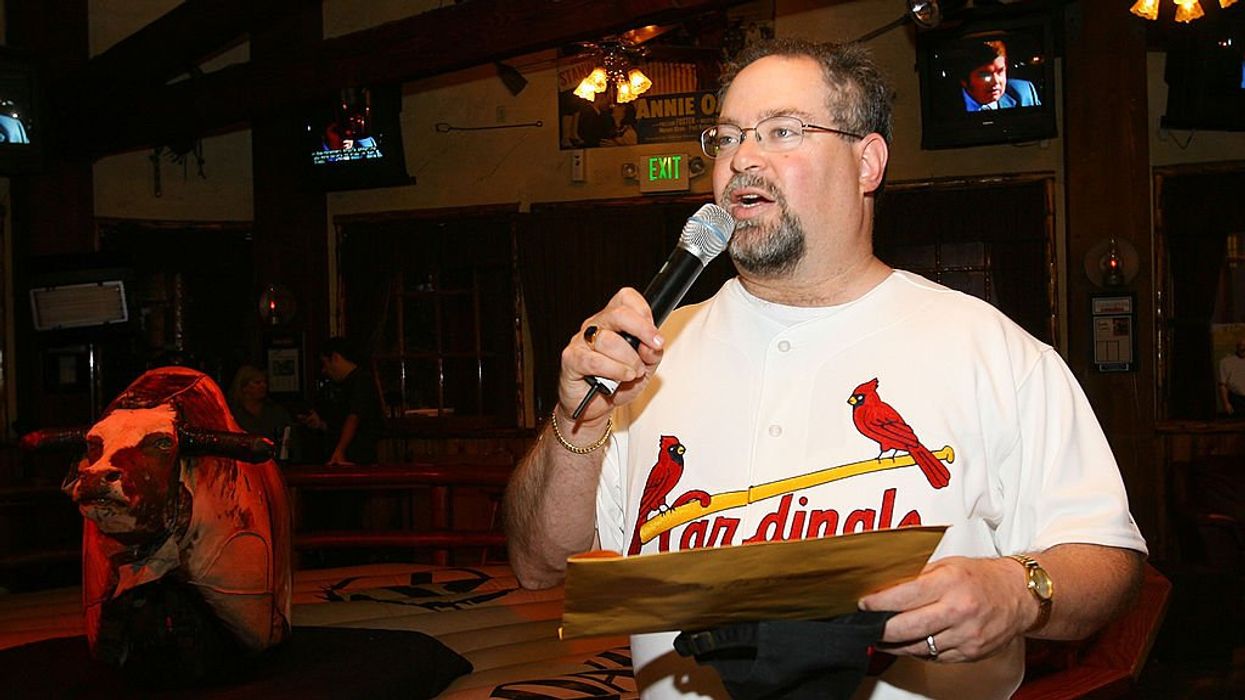
U.S. Secretary of State Mike Pompeo testifies June 27 during a Senate Appropriations Subcommittee on Capitol Hill in Washington, D.C. The Trump administration announced new sanctions on Russia Wednesday for the poisoning a double agent on British soil. (Photo by Zach Gibson/Getty Images)



